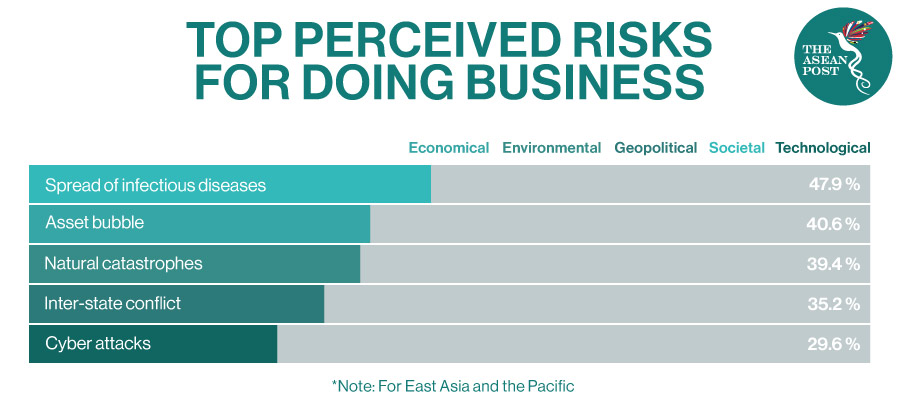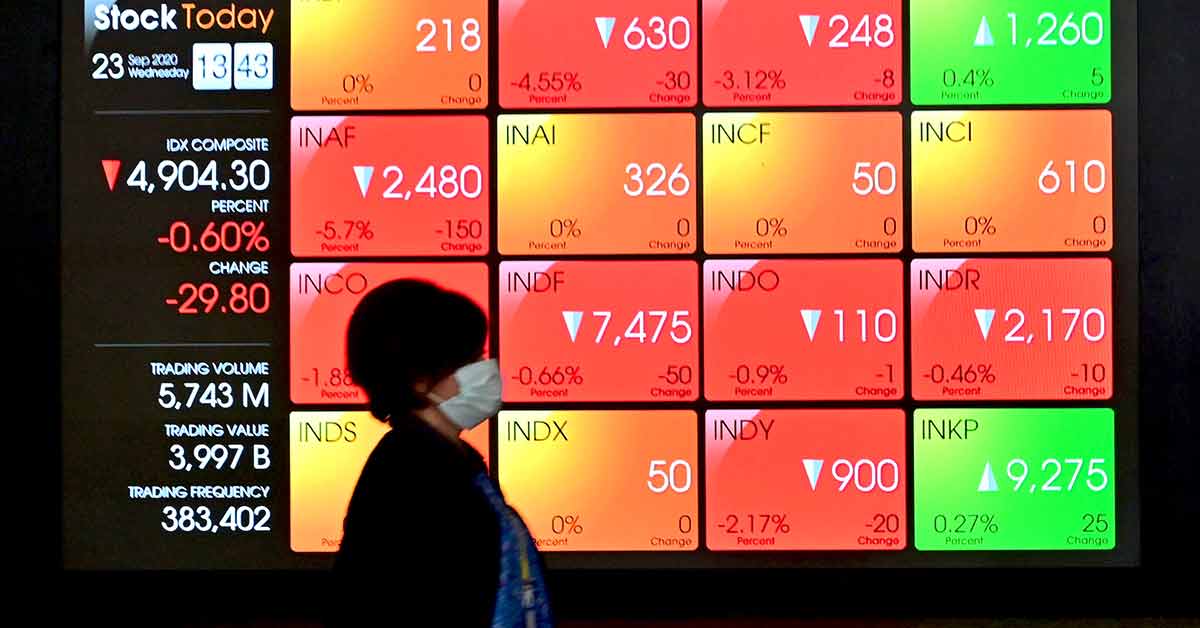Every year, the World Economic Forum (WEF)’s Executive Opinion Survey polls business leaders from around the world on their perceptions of top global risks. It is a study of what the world’s business community is most concerned about for the coming decade.
This year, the WEF found that unemployment is the main concern among executives globally, closely followed by infectious diseases – which progressed from last to second spot compared to last year’s data, while fiscal crisis rounds off the top three risks for doing business. The results are not entirely surprising given the current crisis and impacts of the coronavirus pandemic.
The findings of the Regional Risks For Doing Business 2020 are based on a survey of over 12,000 business leaders from 127 countries including those in the East Asia and Pacific, Eurasia, Europe, Latin America and the Caribbean, among other regions.
The respondents were given a list of 30 global risks and asked to select five they believe to be of “most concern for doing business in your country within the next 10 years.” Some of the global risks include asset bubble, deflation, terrorist attacks, water crises, inter-state conflict and cyber-attacks.
Other interesting data includes the fact that climate risks are increasingly being acknowledged as threats to business. Although the top risks are mostly related to economics, climate-related risks are causing greater concern this year, with natural catastrophes, extreme weather events, biodiversity loss and ecosystem collapse and failure of climate-change adaptation featured more prominently.
“The employment disruptions caused by the pandemic, rising automation and the transition to greener economies are fundamentally changing labour markets. As we emerge from the crisis, leaders have a remarkable opportunity to create new jobs, support living wages, and reimagine social safety nets to adequately meet the challenges in the labour markets of tomorrow”, said Saadia Zahidi, Managing Director at the World Economic Forum.
Asia’s Concerns
As for East Asia and the Pacific, the spread of infectious diseases is the region’s top perceived business risk, followed by asset bubble, natural catastrophes, inter-state conflict and cyber-attacks.

Last year’s Regional Risks survey results revealed natural catastrophes, cyber-attacks and interstate conflict among the top worries for business leaders in the region. However, as the COVID-19 crisis ravaged livelihoods, businesses and the economy in general – the spread of infectious diseases has made its way to the top as the region’s number one concern this year.
This new pattern could also be seen in regions such as Eurasia and Europe where business leaders there also ranked the spread of infectious diseases such as the COVID-19 as the main risk to business.
“The global pandemic has unleashed untold damage to our economies and societies. Business leaders in Asia have recognised that risk in their response to the Forum’s survey, with infectious diseases appearing as the number one risk for the region. As new partners to the initiative, we are working to better understand the interconnections between the risks perceptions of business leaders and their broader multi-stakeholder community. What we already know is that tackling the intersecting risks of pandemic, financial risks, and climate change will be a cornerstone of the desired new normal,” said Lee Hyung Hee, President, Social Value Committee of conglomerate company SK Group.
Southeast Asia
Although in general, East Asia and the Pacific ranked infectious diseases as their main concern, each country across the region has also recognised other worries when it comes to doing business.
In ASEAN member states Cambodia and Thailand, 32 percent and 44 percent of respondents perceived asset bubble as their top risk in business, respectively. Whereas Indonesia (52 percent), Malaysia (45 percent) and Vietnam (65 percent), selected the spread of infectious diseases as their main concern.
Around 41 percent of respondents from Lao PDR said deflation was their greatest worry, while, understandingly – 55 percent of surveyed Philippine business leaders ranked natural catastrophes as their top perceived business risk.
Data from the Regional Risks For Doing Business 2020 report is released ahead of the WEF’s inaugural Jobs Reset Summit which is scheduled to take place from 20 to 23 October. The summit aims to contribute toward shaping inclusive, fair and sustainable economies, societies and workplaces.
Related Articles:
